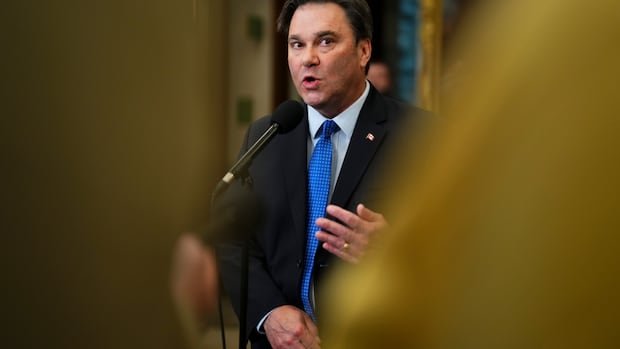On the Vancouver Island coast, the remaining NDP Members of Parliament convened for reflection. The seven survivors, humorously dubbed the “mighty seven,” met in Parksville for a caucus retreat before the upcoming fall session in the House of Commons. These extended meetings are aimed at aiding political parties in regrouping and planning before their return to Ottawa. The NDP had much to address over the summer months.
In a small boardroom at the hotel, specifically designed for “intimate gatherings,” a facilitator joined the MPs armed with markers and art supplies. Laughter filled the room behind a closed door adorned with a welcoming hand-drawn sign, possibly part of an exercise. The facilitator later escorted a journalist away to ensure a safe space for the MPs to share openly.
During the retreat, the MPs engaged in various activities, including pairing off to stroll along the beach, discussing issues as the tide rolled in. The party had faced challenges, still reeling from their worst election performance in Canadian history. Despite initial confidence in their campaign’s preparedness and funding, the NDP suffered significant losses, dwindling from 24 seats to just seven, losing official party status in Parliament.
Interim leader Don Davies described the campaign as one of the worst he had witnessed, with the results deemed devastating. The MPs grappled with the aftermath, including internal conflicts post-election. Emerging from the facilitation sessions in British Columbia, a sense of progress was palpable, with optimism expressed about rebuilding the party.
In Courtenay, the MPs hosted a town hall following the retreat, drawing a diverse audience. Each MP outlined their critic portfolios, showcasing their roles with humor and dedication. The MPs fielded questions from attendees with passion and transparency, emphasizing the party’s resilience in the face of challenges.
The rebuilding process was symbolic on Vancouver Island, previously a stronghold for the NDP, where the party held six of its seven ridings. Despite electoral setbacks, there was a determination to reconnect with grassroots support through town hall engagements. The upcoming leadership selection process offered an opportunity for the NDP to redefine its future direction.
Criticism regarding the nomination rules for party leadership highlighted broader debates within the NDP about identity politics and class representation. The party’s review aimed to understand the loss of working-class voters to the Conservatives and the shift of left-leaning voters towards the Liberals. With a minority government in play, the NDP MPs recognized their potential influence on legislative decisions.
As the NDP navigated its path forward, the MPs remained committed to amplifying their progressive voice on crucial issues. With only seven MPs among the 343 in the House of Commons, the challenge lay in ensuring their voices were heard amid the political landscape.

